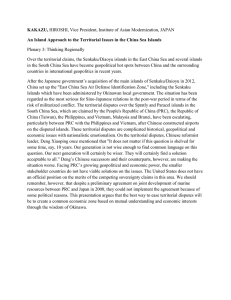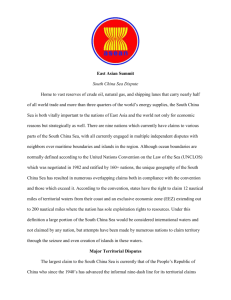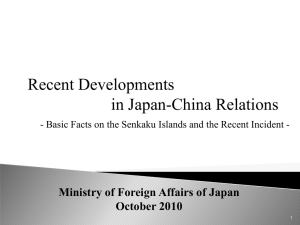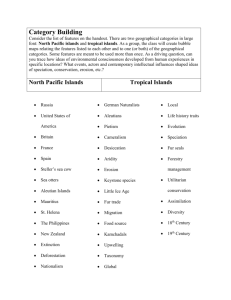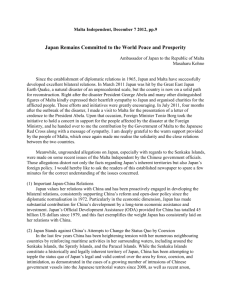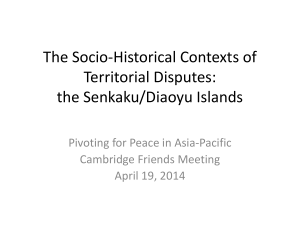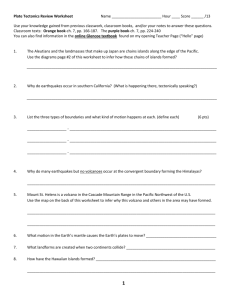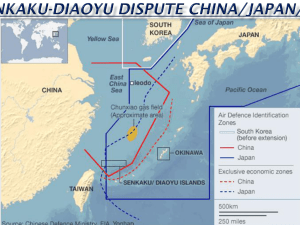Position Paper: Japan
advertisement
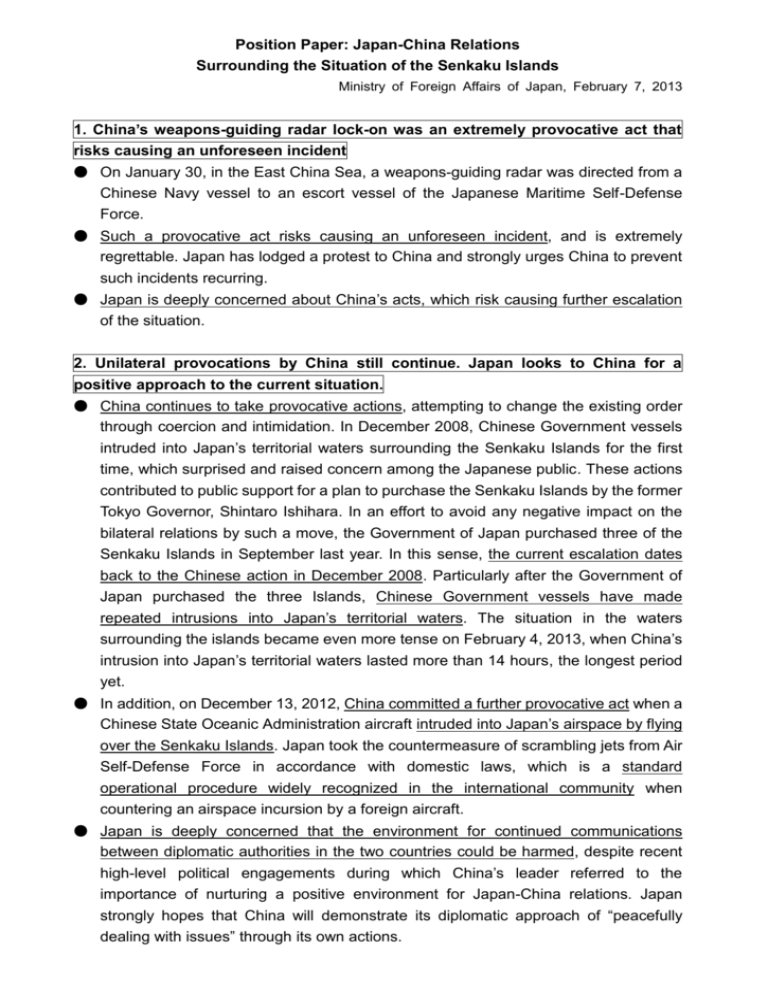
Position Paper: Japan-China Relations Surrounding the Situation of the Senkaku Islands Ministry of Foreign Affairs of Japan, February 7, 2013 1. China’s weapons-guiding radar lock-on was an extremely provocative act that risks causing an unforeseen incident ● On January 30, in the East China Sea, a weapons-guiding radar was directed from a Chinese Navy vessel to an escort vessel of the Japanese Maritime Self-Defense Force. ● Such a provocative act risks causing an unforeseen incident, and is extremely regrettable. Japan has lodged a protest to China and strongly urges China to prevent such incidents recurring. ● Japan is deeply concerned about China’s acts, which risk causing further escalation of the situation. 2. Unilateral provocations by China still continue. Japan looks to China for a positive approach to the current situation. ● China continues to take provocative actions, attempting to change the existing order through coercion and intimidation. In December 2008, Chinese Government vessels intruded into Japan’s territorial waters surrounding the Senkaku Islands for the first time, which surprised and raised concern among the Japanese public. These actions contributed to public support for a plan to purchase the Senkaku Islands by the former Tokyo Governor, Shintaro Ishihara. In an effort to avoid any negative impact on the bilateral relations by such a move, the Government of Japan purchased three of the Senkaku Islands in September last year. In this sense, the current escalation dates back to the Chinese action in December 2008. Particularly after the Government of Japan purchased the three Islands, Chinese Government vessels have made repeated intrusions into Japan’s territorial waters. The situation in the waters surrounding the islands became even more tense on February 4, 2013, when China’s intrusion into Japan’s territorial waters lasted more than 14 hours, the longest period yet. ● In addition, on December 13, 2012, China committed a further provocative act when a Chinese State Oceanic Administration aircraft intruded into Japan’s airspace by flying over the Senkaku Islands. Japan took the countermeasure of scrambling jets from Air Self-Defense Force in accordance with domestic laws, which is a standard operational procedure widely recognized in the international community when countering an airspace incursion by a foreign aircraft. ● Japan is deeply concerned that the environment for continued communications between diplomatic authorities in the two countries could be harmed, despite recent high-level political engagements during which China’s leader referred to the importance of nurturing a positive environment for Japan-China relations. Japan strongly hopes that China will demonstrate its diplomatic approach of “peacefully dealing with issues” through its own actions. 3. Japan, a peace-loving country, contributes to peace and prosperity in the region ● It is extremely regrettable that China resorts to unilateral provocations while there are signs of dialogue between Japan and China. Japan strongly urges China to return to the principle of the mutually beneficial relationship based on common strategic interest, and exercise self-restraint to avoid escalating the situation. ● Japan’s basic position that the Senkaku Islands belong to Japan is unshakable. At the same time, Japan, as a responsible stakeholder of the region, will deal with the current situation in a calm manner from a broad perspective. Japan is ready to maintain close communications with China in an effort to ease tensions. ● Based on the national policies that Japan has consistently maintained after World War II, Japan, as a peace-loving nation, will continue to contribute to peace and prosperity in Asia. (Reference) Facts about China’s provocative actions Recently, Chinese provocative actions in the waters near the Senkaku Islands have become increasingly intense. China’s intention to topple the status quo concerning Japan’s valid control by coercion is clear. During the period between September 11, 2012 and February 6, 2013, Chinese government vessels navigated the Japanese contiguous waters off the coast of the Senkaku Islands nearly daily, except some days due to poor weather as a result of typhoons. They have intruded Japanese territorial waters as many as 25 times using a total of 83 vessels. The vessels sometimes stay in the Japanese territorial waters for several hours. -End-
